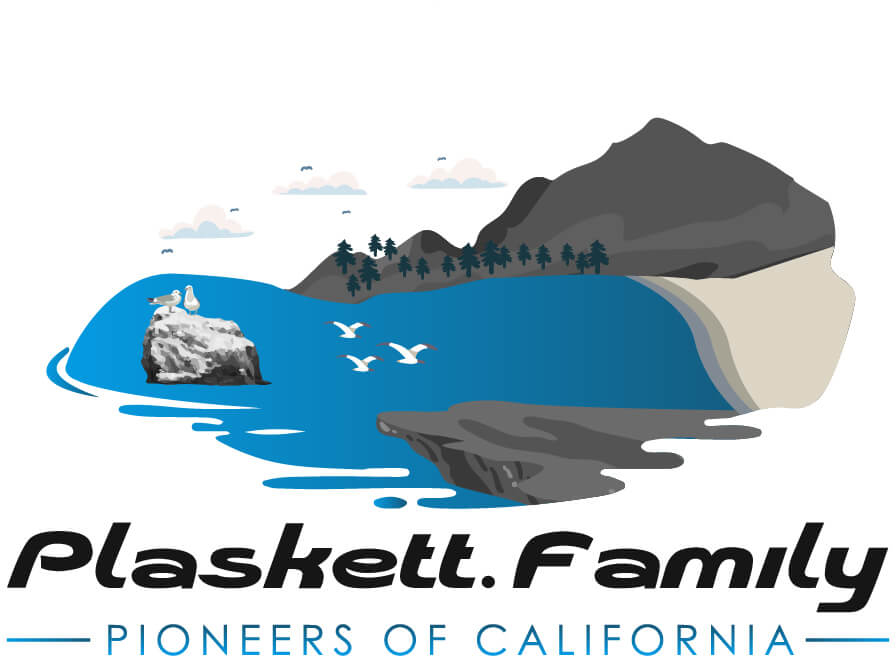By Mabel Plaskett
Among the pagan Indians who stole silently from the hills to hear the first Padres sing the Canticle of Dawn at the San Antonio Mission were the forefathers of Antonio Fontes, known as “Tony.”
After the coming of American rule and the San Antonio Missionaries were gone, many of the Mission Indians moved farther into the hills and on the south side of Cone Peak in a sheltered swale not far from the head of Mill Creek, Gabriel Fontes made his home.
Here were born Tony and Leandro. Alberta the oldest of the family was born near the Missions where the Fonteses first lived.
Alberta had an interesting life – A wealthy couple, upon observing the devout manner of the young Indian maid at mass took her into their family as a governess for their two daughters and she stayed with them until the children were grown, making several trips to Europe. When she was no longer needed Alberta returned to her own people. She died in Greenfield in her eighties.
Leandro, the younger brother, married a girl from Oregon and makes his home near San. Jose.
But let’s get back to Tony, who was named for his uncle by marriage, Jose Antonio Gomez, whose wife was Marcelina Fontes, sister of Gabriel Tony was a strong, handsome young man, a fine worker with a pleasing personality. Always fond of a joke, Tony could see the funny side to everything. He was kind and soft spoken and everyone with whom he came in contact became his friend.
Tony started working for wages at the age of 16. He worked for Abraham Yates in the Jolon Valley, later for the Sans brothers in Mill Creek. He filed on a homestead above Lion Creek on the coast which he sold to R.M. Digges for whom he worked many years.
While working for Digges, Tony met and married Victoria Cosio, comely daughter of Ramon Cosio, and they started their life together in Ventura Canyon near the head of Stoney Creek flat. Here their children were born. Young Tony, Johnny, Eddie and Julia.
During these years Tony worked at the Milpitas ranch as a horse wrangler and all-around cow hand. He was an expert rider and famous for his skill in training saddle horses. In harvest season Tony worked in the San Joaquin Valley driving eight or 12-horse teams. Anything pertaining to horses Tony did well.
As the family grew older the mother moved with them to Sutter Creek, where the boys worked in them mines. Tony, however, could not stay long away from Jolon and the coast country which he dearly loved. Around 1940 he moved to French Camp at the head of Vicente Creek on the coast in the very shadow of Cone Peak and here he lived for the next eight years as caretaker for George Gamboas.
This life suited Tony to a T. He could hunt and fish and live a carefree life. On the occasion of the Gamboas visits to the camp it was Tony’s pleasure to have everything in perfect order and a big mess of speckled beauties especially for Mrs. Gamboa, who he fondly called his Patrona.
While living here Tony was quite badly hurt while riding with Don Stiles in his jeep. The jeep hit a log and overturned throwing Tony out. He suffered severe cuts on his head nearly went to meet him and Tony was many weeks in the King City hospital where they managed to save the sight of his eye.
After leaving French Camp, Tony worked for Chum Earl on his ranch near Lockwood. By this time Tony was getting tired and began to listen to the urgent request of his children to come live near them at Sutter Creek. Already two of his sons were gone. Tony Jr. was killed in a shipyard accident and young Johnny drowned in the Mouckalome River.
Finally, Tony left Jolon and settled in a little cabin in Sutter Creek near his daughter Julia, Mrs. Gandara. Here he lived contentedly, self-sufficient to the last.
He came every year to visit his friends around Jolon. He would invite them to his home saying, “Come any time, I live right across the street from the grocery store, no trouble to get enough to eat.”
His visit in July was his last. Aug 5, while sitting in his chair Tony suffered a stroke. The doctor was summoned, but time had run out for Tony. The next day he breathed his last and somehow it seemed fitting that to the end Tony’s wish “not to be a trouble to anyone” was granted.
Mabel Sans Plaskett was born in Coralitas near Ben Lomond in the Santa Cruz Mountain area of California. Her father Edward Robert Sans ran a saw mill near Pacific Valley, along the Nacimiento - Ferguson road to the coast at Highway One. It was there she met Edward Abbott Plaskett, her husband. Mabel wrote about the coast and the pioneers of the 19th and 20th Centuries.

Recent Comments